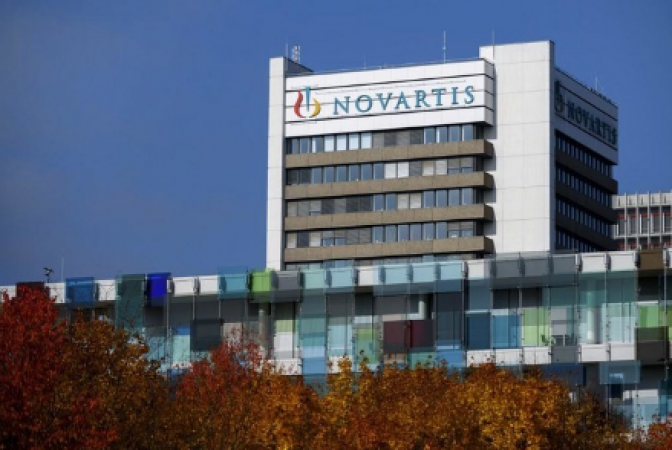
Frankfurt: In a pivotal trial on women with early-stage breast cancer, Novartis' Kisqali reduced the risk of recurrence by more than 25%, putting the Swiss pharmaceutical company in a good position to attract new patients, but Eli Lilly remained a fierce rival.
According to the company, regardless of the patients' menopausal status or cancer progression status, there was a relative risk reduction of 25.2 percent for cancer recurrence. The findings were announced at the American Society of Clinical Oncology's annual meeting in Chicago.
Even though the efficacy read-out was lower than that of a Lilly drug, the Swiss drugmaker's shares increased; however, a more favourable side effect profile could tip the scales in favour of Kisqali.
Also Read: To exchange North Korea missile warning information, the US, Japan, and South Korea
In the trial, the medication was used in combination with conventional endocrine therapy to treat a cancer type that responds to hormones, and it was compared to endocrine therapy alone.
In the market for treating hormone-driven breast cancer that has spread to other body parts, Novartis has displaced Pfizer's Ibrance with its treatment.
However, early diagnosis, when tumours are still amenable to surgical removal, is much more frequent, accounting for about 90% of patients.
However, because the cancer later returns in between a third and a half of cases, better medications are still required after surgery.
Also Read: Indian American Ajay Banga takes over as World Bank President
With the early approval of the competing drug Verzenio, Eli Lilly is in the lead. However, that only applies to a subset of women who have lymph node cancer and are at high risk of recurrence after surgery.
Given that the US pharmaceutical company claims Verzenio lowers the risk of recurrence by 35% in that group, Novartis will face fierce competition in this area.
But because it was successfully tested in patients with both high-risk and medium-risk conditions, a population that is twice as large, Kisqali appears destined to be a pioneer in a larger market.
Investors may be disappointed if the Kisqali efficacy read-out is significantly below Verzenio's efficacy, according to analysts. Jefferies analysts stated on Friday that the efficacy read-out was "closer to our downside scenario."
However, Novartis emphasised the trial's extremely low rates of symptomatic side effects, which is crucial for patients undergoing years-long treatment because only 0.6% of participants taking Kisqali experienced severe diarrhoea.
In contrast, severe diarrhoea affected 8–20 percent of the women participating in Verzenio trials from Eli Lilly. According to Evercore ISI analyst Umer Raffat, this may have significant commercial implications.
At 14:30 GMT, Novartis shares were up 1.5 percent, recovering from the news's initial losses. Lilly stock increased by 0.9%.
According to Jeff Legos, Head of Oncology & Haematology Development at Novartis, diarrhoea can be a very bothersome, burdensome side effect for patients taking anti-cancer medications.
Also Read: UN and AU call for calm following deadly clashes in Senegal
According to analysts, the March trial update increased market confidence in CEO Vas Narasimhan's goals of 4% annual sales growth through 2027 and a 40% core operating income margin starting in 2027.
Before the end of the year, Novartis will submit a request for authorization for expanded use in the US and Europe.
In March, Novartis provided a brief preview of the Kisqali data, boosting its stock price and future prospects.